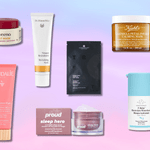Should You Buy Organic Skin Care? What Dermatologists Want You to Know
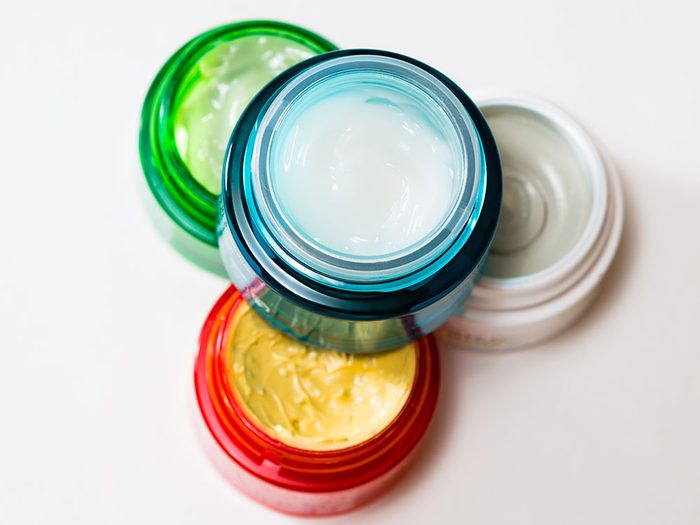
Dermatologists explain what "organic" means when it comes to skin care and discuss whether you should buy only organic skin care products.
By now, you’ve seen the word “organic” on everything from produce and packaged foods to clothing and skin care products for the face and body.
For food to carry the official organic logo, it must have an organic content greater than or equal to 95 percent according to Health Canada.
Essentially, the term organic means that a product contains naturally sourced ingredients that are grown in accordance with organic methods—without the use of pesticides, synthetic fertilizers, growth hormones, antibiotics, or genetically modified organisms (GMOs), explains Blair Murphy-Rose, MD, New York City-based dermatologist and clinical assistant professor at NY Presbyterian Hospital–Weill Cornell Medical Center.
“Organic products are inherently ‘clean’ and free of parabens, sulfates, phthalates, PEG [polyethylene glycol] compounds, petrochemicals, and mineral oils,” she adds.
(Related: Beauty Veteran Jean Godfrey-June Makes a Case for Switching to Clean Beauty Products)
Should you buy organic skin care products?
Most dermatologists agree that there’s no need to shop the “organic” label when it comes to your skin care products. What’s more important is shopping for items that work well for your skin type, notes Marisa Garshick, MD, a board-certified dermatologist at Medical Dermatology & Cosmetic Surgery (MDCS) in New York.
“There are some skin care brands that happen to be organic that offer great products, while there are also numerous skin care brands that are not thought of as organic, but are frequently recommended by dermatologists,” she says.
It’s also important to pay attention to the ingredients list even if a product says it’s organic or naturally derived. Just because something is naturally derived doesn’t automatically mean it’s good for the skin.
“Some natural substances can be irritating to the skin and some natural ingredients—when in their pure or natural form—may not necessarily be safe or effective for use on the skin,” says Dr. Garshick. “That said, if a patient of mine finds a product that is organic that is working really well for their skin and as a result, their skin is well-hydrated, protected, and taken care of, I would not tell them to discontinue it.”
Dr. Murphy-Rose agrees with the notion that “organic” does not always mean safe. “All-natural and organic products are often more difficult to preserve and therefore potentially more risky and subject to contamination and microbial growth,” she says. “The organic label is more for marketing than for true health and safety.”
(Related: The Truth About Petrolatum: Does it Belong in Your Skin Care Products?)
How should you shop for safe skin care?
Whether organic or not, here’s a guide to help you shop for skin care that’s safe, high-quality, and healthy for your skin.
1. Become familiar with reading ingredient lists
Brendan Camp, MD, a Manhattan-based dermatologist at MDCS Dermatology, recommends looking for ingredient lists that offer transparency to the consumer.
“Keep in mind that the first five ingredients in a list are often thought to account for a majority of the product,” he says.
If you don’t know what those first five or so ingredients are—and can’t seem to make sense of them when you do some research—chances are they aren’t the best skin care products out there.
2. Find a product that works well for you and your skin
It is important to do your research and speak to a board-certified dermatologist or skin care professional to know what ingredients would work best for your skin, notes Dr. Garshick.
“If you have sensitive skin, it is best to avoid products with harsh ingredients, abrasive scrubs, or fragrances as these can be irritating to the skin,” she says. “If you are oily, it is best to look for products that are oil-free and non-comedogenic.”
3. Cost does not necessarily correlate with effectiveness
Joshua Zeichner, MD, director of cosmetic and clinical research in dermatology at Mount Sinai Medical Center tells his patients not to shop by price tag, but to instead look for fragrance-free products.
“Products without fragrance minimize risk of developing skin allergies,” he says. “If it sounds too good to be true it likely is.”
(Related: The Benefits of a Stripped Down Skin-Care Routine)
Which organic skin care products do dermatologists recommend?
If you want to try out some organic skin care products, here are the ones dermatologists say are worth considering.
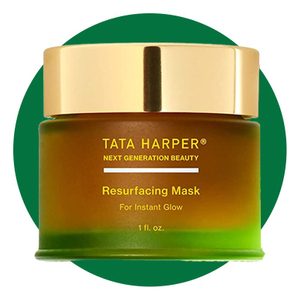
Tata Harper Resurfacing Mask
$81, thedetoxmarket.ca
“This mask includes 18 high-performance botanical ingredients including white willow bark, acting as a beta-hydroxy acid, and pomegranate enzymes to help brighten the skin and improve skin texture,” says Dr. Garshick. “In this mask, according to the company, 100 percent of the total ingredients are from natural origin, while 82 percent of the ingredients are from organic farming.”
(Related: 3 Crucial Ways to Update Your Beauty Routine Now)
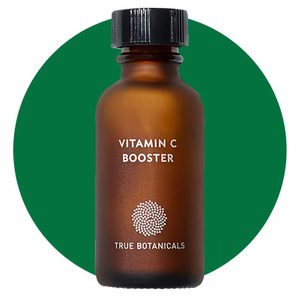
True Botanicals Vitamin C Booster
$120, goop.com
Vitamin C is one of the most powerful antioxidants for your body and skin, and when coupled with the other nourishing ingredients in this True Botanicals serum, such as organic tapioca starch and ferulic acid, it helps brighten skin and improve the appearance of fine lines and wrinkles, says Dr. Garshick. “The company notes that the products are all made with Made Safe Certified Ingredients and are packaged and shipped in a way to minimize the impact on the environment,” she adds.
(Related: 8 Signs Your Skin Products Are Secretly Damaging Your Face)
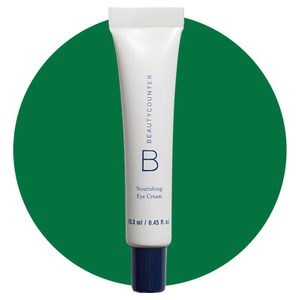
BeautyCounter Nourishing Eye Cream
$44, beautycounter.com
This lightweight eye cream uses aloe and organic coconut oil as its two main ingredients. “Both aloe and coconut oil work to provide moisture to the sensitive under-eye area and help give a refreshed, hydrated appearance,” says Dr. Garshick. “As a company, BeautyCounter is transparent about what is in their products and has committed to various safety standards, including sourcing, manufacturing, and testing.”
Next: Facial Cupping Will De-Puff Your Face While Relieving Built-Up Tension




